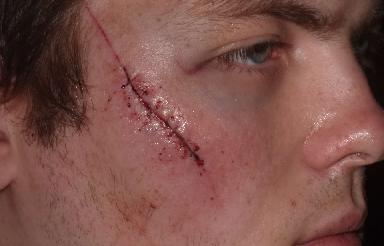Part 1
How Scars Make Us Feel

There is unlikely an adult human on the planet without a scar. Most scars are not of consequence to cause severe emotional or physiological issues. Wound research has proven that the age of the person, gender and location of the scar are factors on how it will affect a person. In addition how the scar occurred can make it more of a problem. Facial scars cause more duress and scars that may be disfiguring or near around intimate areas of the body. Society premium appearance contributes to the anxiety associated with scarring. Stereotypes in moving show scarred people to be unpleasant, sadistic and mean.
However in some cultures consider scars desirable and are intentional and deliberate. Some tribes identify their clan and families by scar markings this was very common in Nigeria though the custom is no fading. Traumatic scarring is often very different. I greatly distress the person suffering from the scar and detract from their quality of life. Some anthropological studies indicate that facial symmetry seems to be innate attraction within humans; clearly facial scarring moves a person further away from what maybe a pre-programmed ideal. People who have adverse reaction to the scars can experience embarrassment and loss of self-image. Over long term this can lead to isolation, anger and self-loathing. In worse case scenarios psychological conditions that need to be treated can develop.
Today’s modern surgical techniques in the field of cosmetic surgery now provides many options in scar revision. Birth Marks, skin anomalies as well as scars can be treated with much success.
